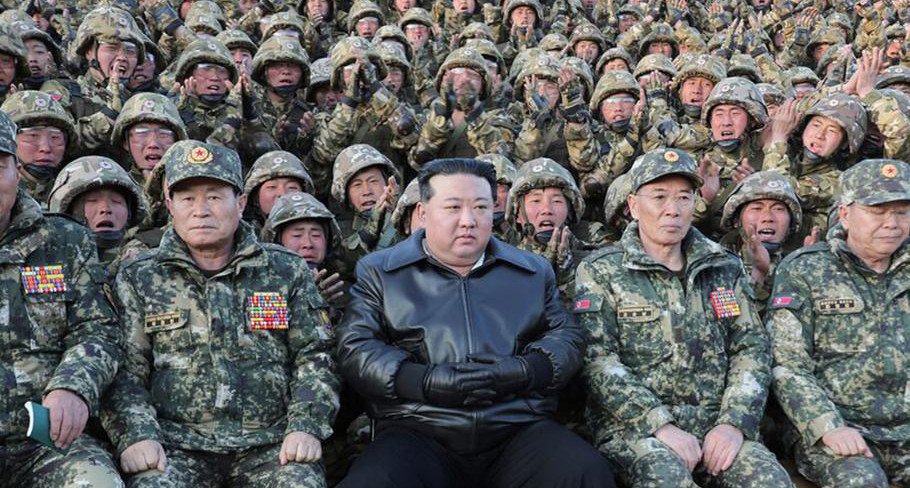
Legion’s Foreign Relations Committee receives update of the threats from Russia, China, Iran and North Korea.
Brian Kerg, a nonresident fellow in the Indo-Pacific Security Initiative at the Atlantic Council’s Scowcroft Center for Strategy and Security, presented an overview of the United States' major adversaries to The American Legion's Foreign Relations Committee of the National Security Commission.
Among the points Kerg made during the virtual presentation on Oct. 21:
• China: The ruling Chinese Communist Party (CCP) focuses on “gray zone” tactics. As stated by Kerg, the CCP is unlikely to launch an explosive or rash war against the U.S., Taiwan or other allies. Rather, the CCP is operating in the “gray zone” with commercial and military tactics that aren’t technically illegal or enough to warrant a military response but are nonetheless threatening and defiant of international norms. As Beijing tests the limits of acceptable behavior, it slowly but surely normalizes its ability to act with impunity. After years of eroding the will of U.S. allies, the CCP hopes that China will easily be able to assume a spot as the world’s Hegemon and/or defeat the U.S., whose alliances will be weakened.
• Russia: Alternatively, as is evident with the invasion of Ukraine in 2022, Russian President Vladimir Putin does not have the same patience as the CCP when it comes to consolidating regional power or defying the U.S.-led world order. Because of the urgency to remain relevant, Russia is willing to be bolder with its moves against the U.S. We are seeing increasing numbers of attempted cyber attacks from Russia (and, it should be noted, also from China) as well as a constant disinformation cycle about U.S. domestic affairs and the war in Ukraine. As evidenced by waning U.S. support for Ukraine, Russia’s information warfare cannot and should not be dismissed.
• North Korea: Unlike the other two rivals, North Korea is difficult to predict and has been isolated from the international theater for far longer. What is most concerning about Supreme Leader Kim Jong Un is his access to nuclear weapons and growing friendliness with Russia and other more influential autocracies. He has sent troops to fight alongside Russians invading Ukraine. Moreover, aggression against South Korea has increased over the past few months.
• Iran: As tensions rise in the Middle East, Supreme Leader Ayatollah Ali Khamenei has consistently fanned the flames with help from Iran’s proxies across the region (Houthis in Yemen, Hezbollah in Lebanon and Hamas in Palestine). A top priority of the United States regarding Iran must be to keep nuclear weapons out of Khamenei’s hands. The United States should erode the sources of strength for Iranian aggression, whether it is conducted directly or by proxy. Iranian proxy groups have been significantly weakened during the war between Hamas and Israel. Still, Iran will continue to rebuild and defy the world order until its capability for aggression is reduced.
- Security

